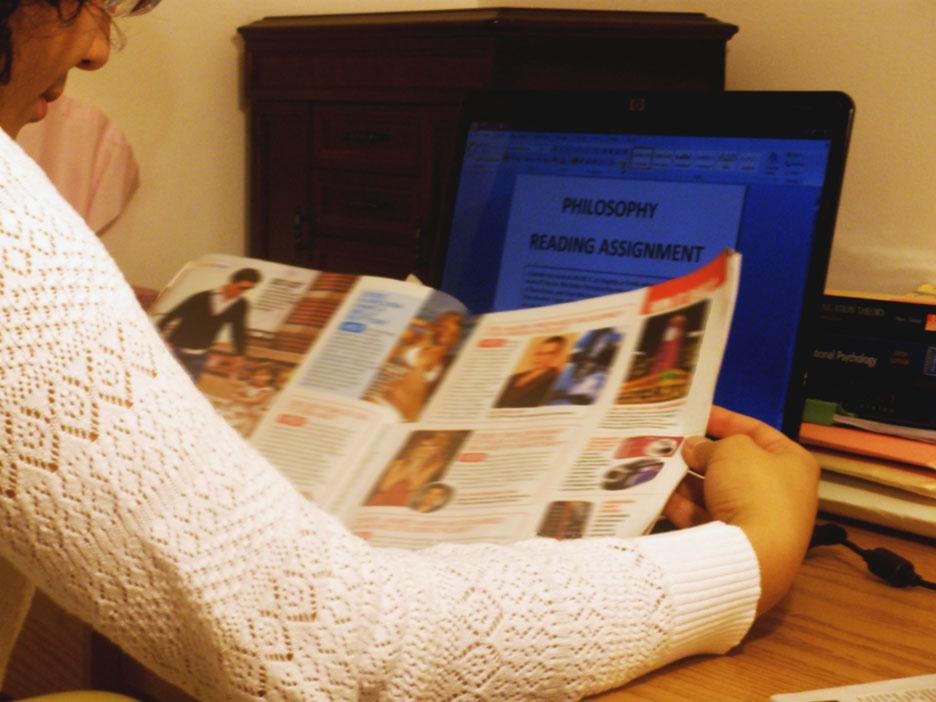Is Being Prepared For Class Crucial at FCLC?
Some Fordham Students and Faculty Allege That it is “Too Easy” to Get Good Grades At Fordham
June 5, 2011

Published: December 11, 2008
“You can always tell when students aren’t prepared for class,” said Jason Greif, dean of juniors and transfer students. Some Fordham faculty and students say that it may be too easy for students to get good grades without putting in effort and wonder what effect this may have upon students once they are out in the workplace.
A recent survey in USA Today suggests that “about 20 percent of college students say they frequently come to claass without completing readings or assignments…And many of those students say they mostly still get A’s.”
Greif said, “Education is not about what you can get away with and still get an A. If students choose not to be engaged, then that’s a shame.”
Many Fordham students balance classes, internships, social outings, work and on top of it all, homework. Kelsey Pete, FCLC ’09, has a full schedule: “I have two part-time jobs in addition to a full class load.” With supplementary activities taking up students’ days, little time is left over for doing classwork that students believe won’t necessarily affect their grades in a negative way.
Pete, who has a 3.75 GPA, says that she has gone to class unprepared before. “Sometimes I come to class unprepared because I’m too busy, but sometimes I’m just lazy, and I know I can get away with it. Also, I figure it’s worse to not do the work and not to go,” Pete said.
Jasmine Mucha, FCLC ’09, said, “There are days when I’m not prepared. Everyone has their days.”
A Fordham senior who prefers to remain anonymous said he thinks that students have to weigh the effects of doing the work before deciding whether or not to do it. “It’s an art; you have to know when you can and cannot afford to miss assignments.”
Shapoor Vali, assistant professor of economics, thinks that Fordham may not be challenging enough. “Yes, I do think it is too easy to get good grades at Fordham, [but you can’t generalize across disciplines,]” Vali said.
Pete also said she thinks that the demands that Fordham professors place on their students are inconsistent, varying according to who is teaching the class and in what department. “With some professors, you can get away with not doing the readings; some you can’t. Some departments require more work and others require less,” Pete said.
Pete said, “With the core [class requirements], we don’t always want to be there, and I feel like the professors know that. I’m a bit of an over-achieving control freak when it comes to school, like a little crazy about my GPA sometimes, but even that doesn’t mean I do all my work all the time.”
According to Fordham’s Web site, the core at Fordham “is designed to nurture curiosity, inspire a love of learning and to provide students with the foundations they will need to engage in lifelong learning. In short, the Core Curriculum seeks to provide all Fordham students with the liberal arts background that will prepare them for the challenges and opportunities of the future.” It may be even easier for students to get by without preparing in these peremptory classes.
According to Greif, “The core gives you a balance of liberal arts education and prepares you to be a thoughtful, ethical person. Secondarily, it can prepare you for your major. The core strives to give students a well-rounded education in critical thinking.” As students progress through the core into their majors, classes become more challenging and coming to class unprepared gets increasingly difficult.
Mucha said, “It seems harder to skip reading assignments in upper level courses. You can get really lost in class if you haven’t done the reading.”
The ramifications for Fordham students may only affect them grade-wise in school; however, in the workplace or in other activities outside of school, a lack of preparation may also have a negative effect. Greif believes that working hard in school will have a residual effect outside of school. “In the workforce, if you don’t ‘do your homework’ and are not prepared in meetings, at a minimum you’ll embarrass yourself by not knowing what’s going on. On the other side, you’ll make your company look bad, and it’s not going to help if you want a promotion.”
Mucha says that skipping assignments can have negative effects on students. “If it becomes a habit, if you think that winging it will always turn out well, you probably will run into trouble when you have serious responsibilities assigned to you in the workplace.”
So how do professors guard against students who come to class unprepared? Brian Rose, professor of communications and media studies, said that, in his experience, he has not noticed a huge trend of students coming to class unprepared; however, he said that he thinks professors can nip this problem in the bud by factoring in a few important components to their classes. “Stressing the importance of attendance and participation as part of the final grade and, most importantly, giving regular quizzes” are methods he uses for checking to see if students have put in their fair share of effort.
Fred Campano routinely gives exams and invites his students to participate in class discussion. “I try to ask questions in class, but with a large class it’s hard to get to everyone. My grades are all based on the exams.”
Greif stresses that one of the strengths of Fordham is its small class size. “Because our classes are smaller, it’s harder to hide. If you are constantly unprepared and not contributing, you stand out,” he said.











